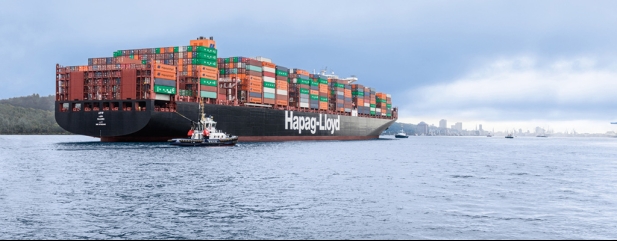Archived article
Please note that tax, investment, pension and ISA rules can change and the information and any views contained in this article may now be inaccurate.
Climate change and geopolitics could force transport costs higher again

Just when it seemed inflation was being brought under control, particularly in terms of input costs for businesses like energy and labour, events thousands of miles away are threatening to send prices back up again.
While they may seem to have nothing to do with UK consumers or investors, together a drought in Central America and an increase in the terror threat in the Middle East could rekindle inflation expectations.
The authority which operates the Panama Canal reports the region has experienced its driest October since at least 1950 due to the El Niño weather system.
During the first week of December, around 170 ships used the canal compared with 238 last year, according to Marine Traffic, and from February the number of ships using the 80 kilometre canal will be reduced to just 18 per day after the authorities cut the number of crossings for the first time.
Rolf Habben Jensen, chief executive of Hapag Lloyd AG (HLAG:ETR), the world’s fifth-largest container ship owner, called the drought ‘a serious concern’ in a Financial Times article.
The firm has diverted more than 40 ships from Panama to the Suez Canal, more than 11,000 kilometres away, for trade between the east coast of the USA and Asia.
However, missile attacks on commercial vessels and a drone attack on a US warship in the Red Sea last week by Yemen-based Houthi rebels have seriously escalated tensions and raised concerns over the safety of shipping using the Suez Canal.
‘If the passage through the Suez would become more difficult, that would cause serious problems,’ Habben Jensen is quoted as saying.
According to trade analysis group MDS Transmodal, more than half of the world’s container shipping by volume linking Asia to North America used either the Panama or Suez canals in the three months to September.
As well as meaning a shortage of goods, which could lead to higher prices in the shops, problems using the canals are forcing up dry bulk freight rates after a long period in the doldrums.
Taylor Maritime Investments (TMI), which owns a fleet of 44 vessels, reported this week its average time charter equivalent rate per day over the six months to the end of September was above its benchmark indices, and its latest long-term charter was ‘significantly above the prevailing index rate’.
Reporting on its half-year results a month ago, chartering and shipping advisory firm Braemar (BMS) said forward dry cargo prices were ‘firming up’ and chief executive James Gundy told Shares he believes now is the time to invest in that part of the business.
Important information:
These articles are provided by Shares magazine which is published by AJ Bell Media, a part of AJ Bell. Shares is not written by AJ Bell.
Shares is provided for your general information and use and is not a personal recommendation to invest. It is not intended to be relied upon by you in making or not making any investment decisions. The investments referred to in these articles will not be suitable for all investors. If in doubt please seek appropriate independent financial advice.
Investors acting on the information in these articles do so at their own risk and AJ Bell Media and its staff do not accept liability for losses suffered by investors as a result of their investment decisions.
Issue contents
Feature
Great Ideas
News
- Why economists are adamant China does not face Japan-style stagnation
- Alphabet’s Gemini AI launch has Wall Street in raptures
- Has British American Tobacco’s future gone up in smoke?
- Artisanal Spirits’ down 50% in six months following profit warning dram-a
- Climate change and geopolitics could force transport costs higher again
 magazine
magazine








